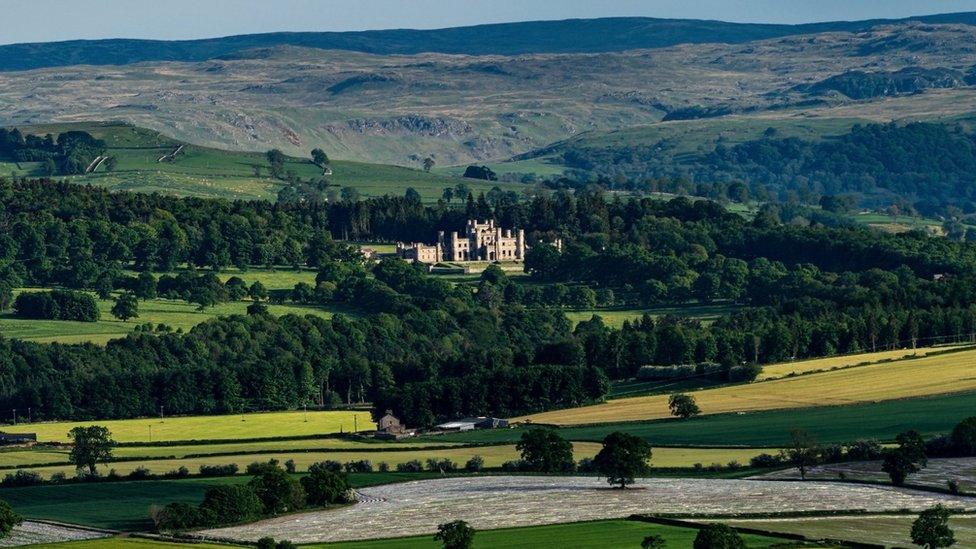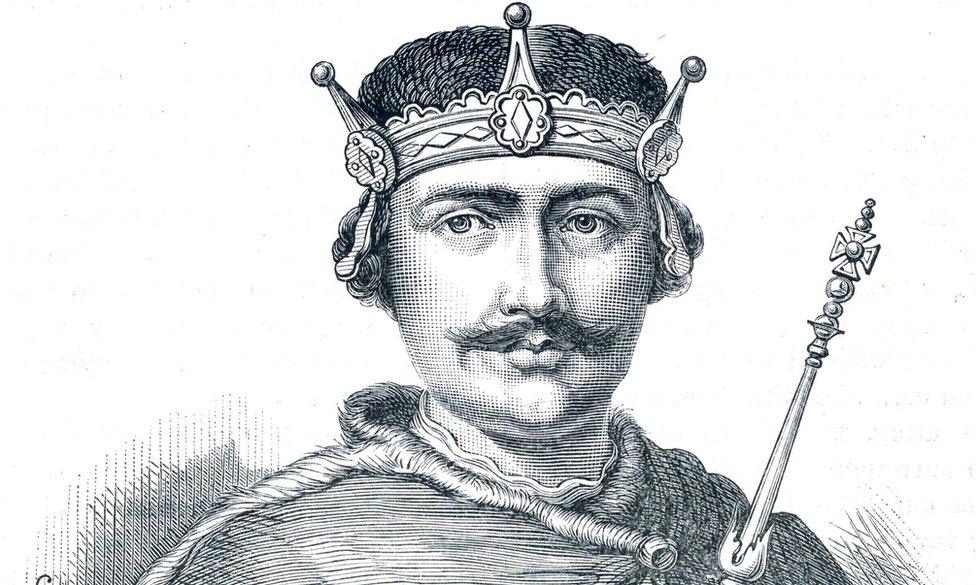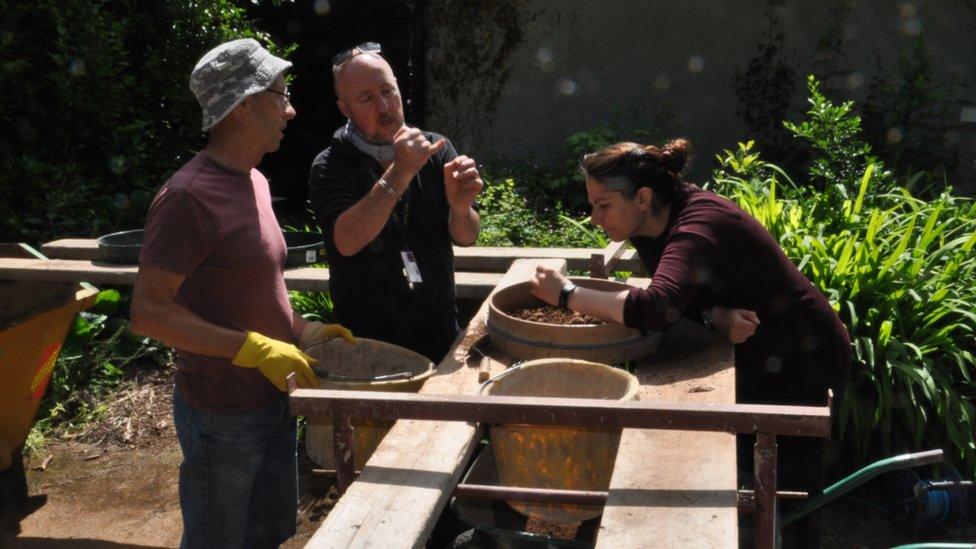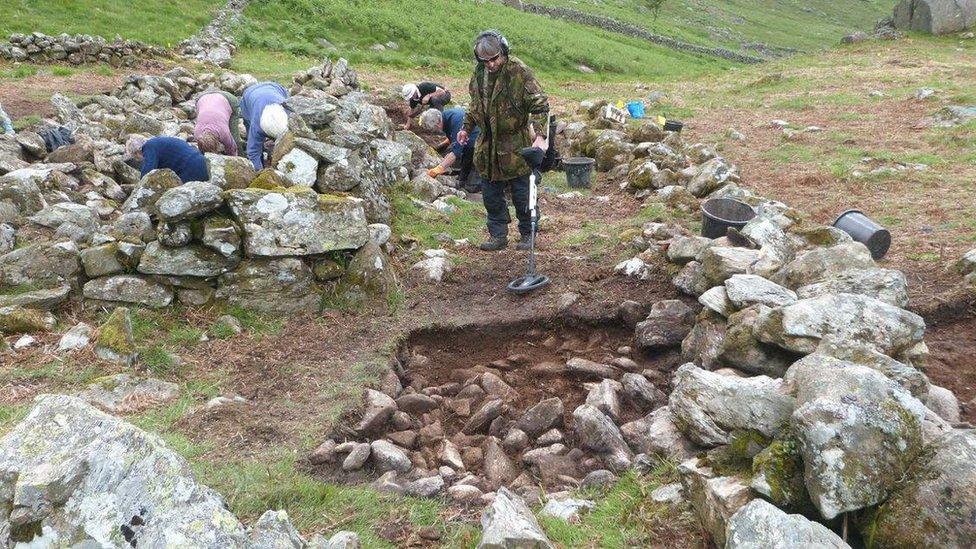Lowther Castle: Archaeologists bid for signs of Norman conquest
- Published

A view from Penrith Beacon looking towards the 19th Century Lowther Castle
Archaeologists are hoping to uncover rare evidence of the Norman conquest of Cumbria.
A dig will be carried out north of Lowther Castle, near Penrith, in the first excavation of the site.
They will explore the remains of what appears to be a medieval castle and village, with the goal of uncovering evidence of when it was built.
"The site is incredibly interesting but we know very little about it," said Dr Sophie Thérèse Ambler, project lead.
The Normans took over the majority of England in 1066 but never made it as far as Cumbria, which was then an independent kingdom.
The conquerors finally annexed the region in 1092 but even then their control of the area was sporadic.
Preliminary work suggests the site could date back to the late 11th or early 12th Centuries, when the empire was expanding.
If so, it would provide rare evidence of the conquest of Cumbria by King William Rufus (William II) and his brother King Henry I.

William II was King of England from 1087 until 1100, with powers over Normandy and influence in Scotland
"It's famous around the region as a wonderful day out with its spectacular ruins at the 19th Century castle but also in the ground are the remains of what look like a medieval castle and an attached village," Dr Ambler, of Lancaster University, told BBC Radio Cumbria.
"We are going to conduct a geophysical survey and open a couple of trenches. We hope to be able to find out the date of the site and the biography of the site over the generations.
"That's particularly important because we have so little written evidence for early and central medieval Cumbria."
Cumbria is not included in the Domesday Book, external (the survey of England compiled by King William I) and few records have survived.
Dr Jim Morris, from the University of Central Lancashire, whose students will carry out the summer dig, said the site "may rewrite our understanding" of the Normans in Cumbria.
"There has never been an archaeological dig on this site before and there is very little archaeological knowledge of the early Norman period.
"We're excited about what we might discover."

Follow BBC North East & Cumbria on Twitter, external, Facebook, external and Instagram, external. Send your story ideas to northeastandcumbria@bbc.co.uk, external.
Related topics
- Published25 January 2023

- Published14 November 2017
